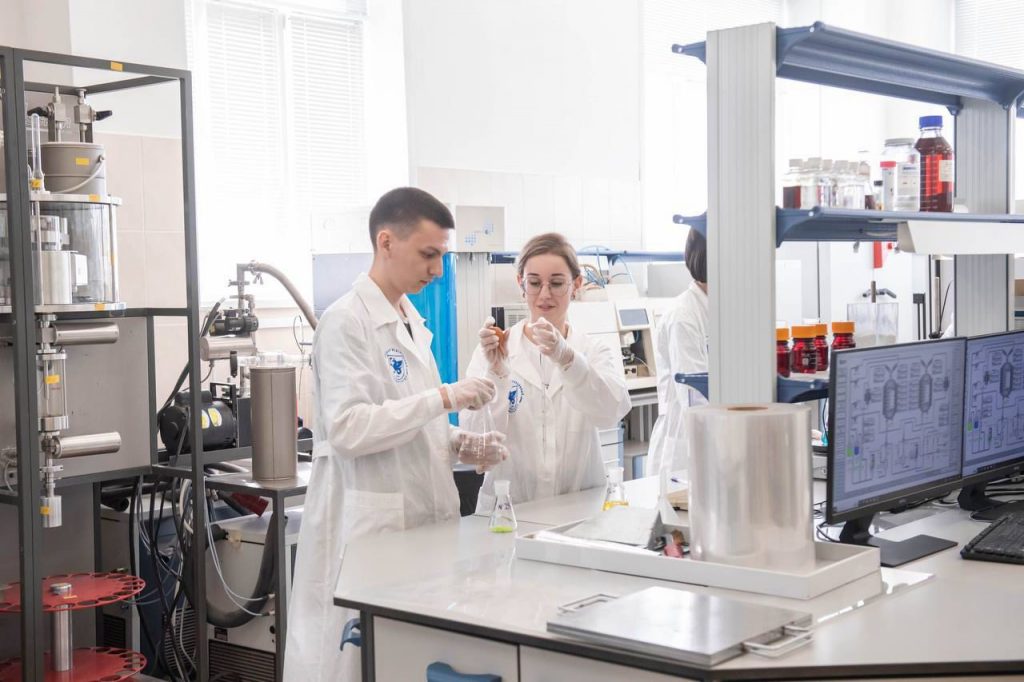KFU-made catalyst successfully utilized by Sibur

Together with a team from the SIBUR Innovations Research Center, Kazan Federal University developed a technology to produce a domestic catalyst for the skeletal isomerization of n-butylenes into isobutylene, an important component for rubber production.
The catalyst obtained in the experimental workshop of KFU was successfully tested at Nizhnekamskneftekhim (part PJSC Sibur Holding) and introduced into the production of isoprene rubbers. To date, the catalyst provides stable performance indicators at the level of the previously used imported catalyst.
In oil refining and petrochemistry, catalysts determine the efficiency of the production process and the quality of final products. 90 percent of technologies in industrial chemistry are feasible solely due to catalysts. Today, most of the petrochemical catalysts are delivered to Russia from abroad.
The work to create a domestic catalyst for butylene isomerization and industrial technology for its production was carried out by a group of scientists from KFU’s Institute of Chemistry and SIBUR.
“The key to the successful development was the strong competencies of the laboratory and experience of successful commercializations – catalysts for dehydrogenation of isobutane, isoamylenes, hydrogenation of acetylenes in the propane-propylene fraction,” says Alexander Lamberov, head of the research team, Chief Research Associate of the Laboratory Materials for Hydrogen Energy and Conventional Energy with Low Carbon Footprint.
The catalyst for butylene isomerization was obtained by impregnation of the prepared alumina carrier with active components. The scientist emphasized that the work used exclusively Russian-made raw materials.
“Firstly, aluminum oxide was chosen based on the operating conditions of the catalyst. Secondly, it has unique properties due to its existence in various crystalline modifications. This allows to vary important properties for catalysts and carriers, such as structure, textural characteristics and acid-base surface properties, all of which contribute to the formation of the necessary characteristics of the applied active component: dispersibility, particle size and shape. Thirdly, aluminum oxide has high thermal stability, which allows it to be operated at high temperatures for a long time,” explains Senior Research Associate Avgustina Boretskaya.
According to Lamberov, the use of domestic catalyst will increase the stability and efficiency of the process and the final product of isomerization. The scientist also notes that the catalyst developed at KFU is characterized by lower operating temperature while maintaining high yield of the target product.
It should be noted that the pilot catalyst workshop has been operating on the basis of the Laboratory of Adsorption and Catalytic Processes of KFU since 2022. Part of the equipment was purchased by the university as part of the Priority 2030 strategic academic leadership program. At the moment, the shop is equipped with industrial equipment for implementation of the full technological cycle of production for import substitution of petrochemical catalysts.

